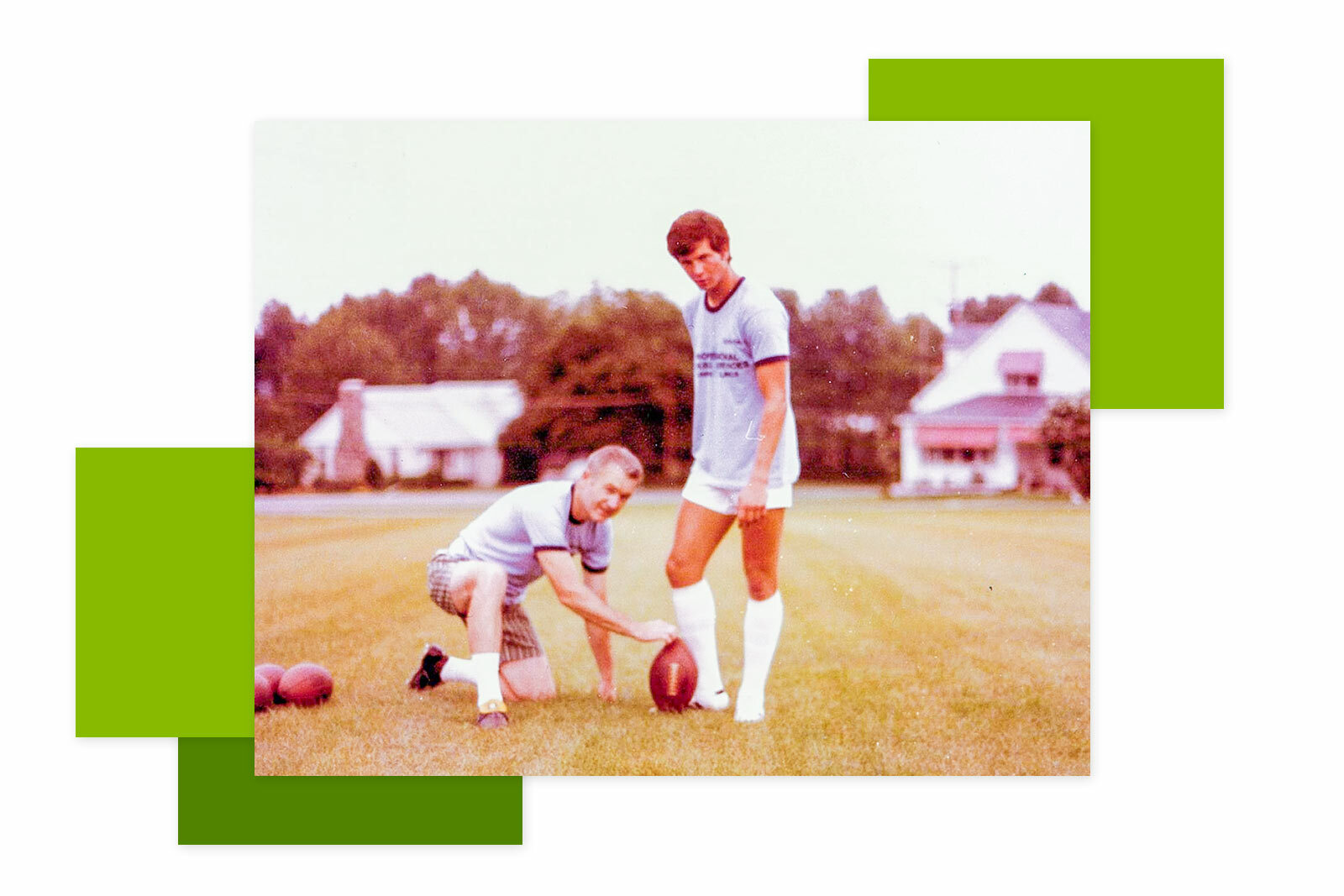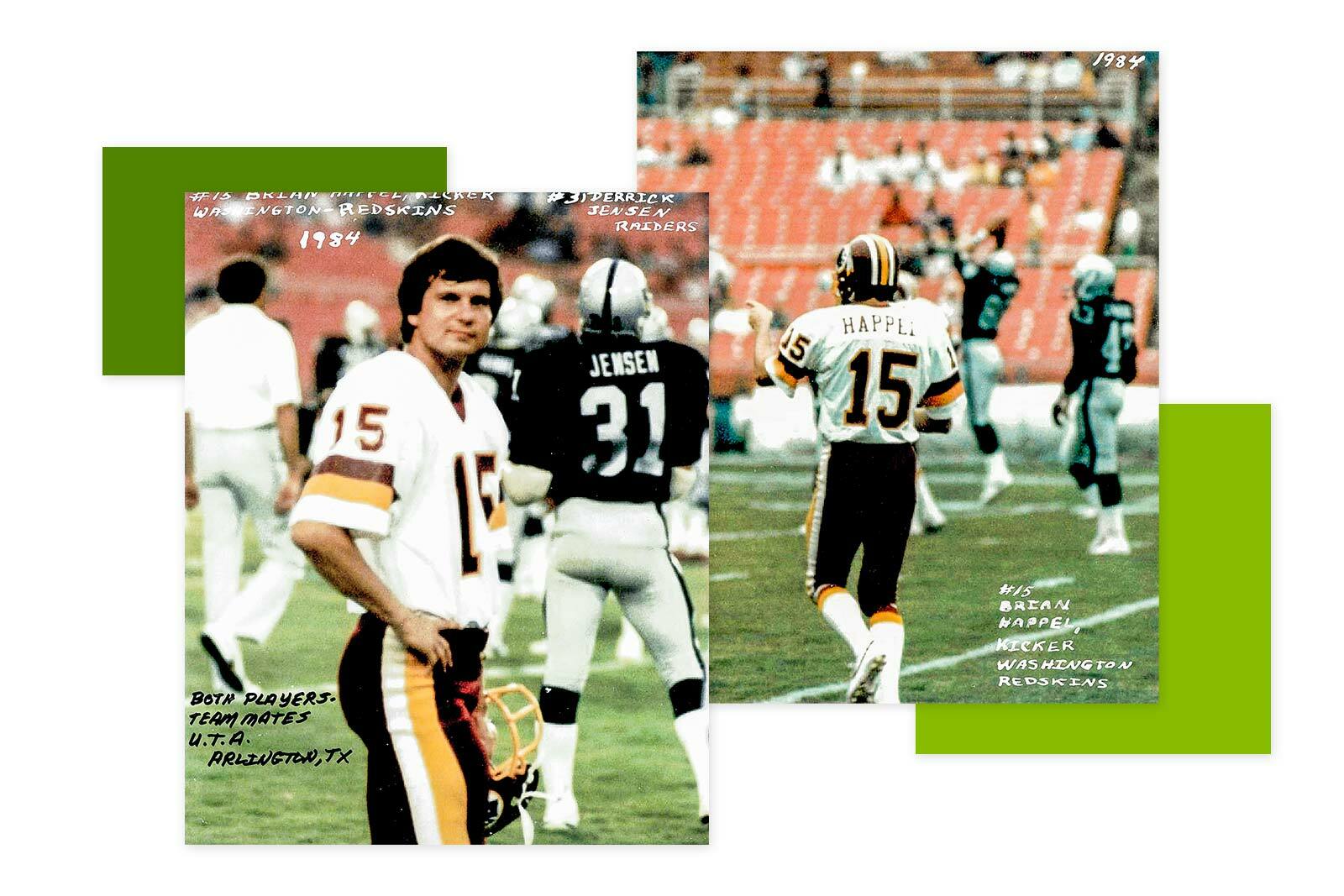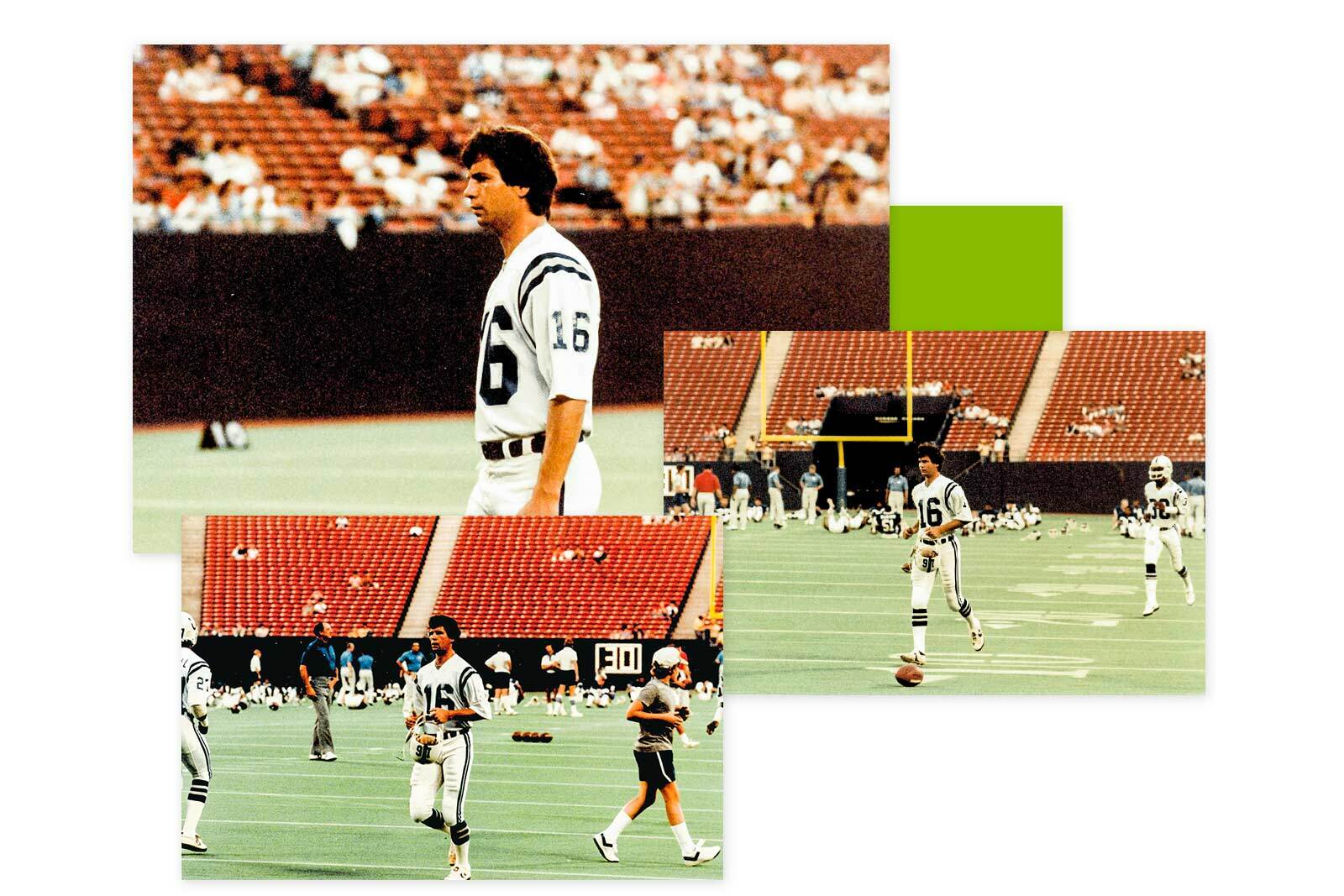“I don’t ever recall receiving so much attention from people.”
In August 2023, Brian Happel was interviewed for an article in Fort Worth Inc. magazine focusing on his time playing professional football.
The Fort Worth Market Executive and commercial banking leader at Regions, Happel usually downplays his football days, and has been surprised by the attention the story received but credits that time in his life for who he is today. This includes two powerful traits that are evident throughout his career: resilience and perseverance.
With the new football season underway, we sat down with the 40-year banking veteran to learn more about his time on and off the field.
You were a kicker in high school, part of the 1981 Southland Conference championship team and went on to play for seven teams in the NFL and USFL. Tell us a little about your journey and how that has influenced your banking career.
During my freshman year in high school my brother and I played both sides of the field – offense and defense. Following that year, we both did punt-pass kick competitions, making our way to a national finals event. I was a conventional style kicker, meaning I kicked with my toe (straight on). One day my grandfather asked me. ‘Why can’t you kick the ball any further?’ He suggested I kick it like the professionals who kick it from the side. After that, my father bought a book on how to kick soccer style. It was a lot like learning how to do ballroom dancing. I began practicing this style day in and day out.
One day, my father blew the snow off the ground and the coach came out and watched. I’d never played soccer in my life, but I learned how to kick differently – and it worked. Even today, that is really what has helped me throughout my banking career. Identifying my shortcomings and reading about or seeking out those who could help me navigate and address them.

You attended the University of Texas at Arlington. Did you know you wanted to go into banking as a career early on?
I didn’t. I actually took one banking and finance class in college and dropped the course because I thought it was boring. I was very focused on football and was signed as a free agent by my first NFL team after his final playing for the university. I went on to a USFL team later that same year but returned to school after the season to keep pursing my education.
You graduated after a few years of pursuing both but hadn’t found a long-term team to call home. How did you navigate your next steps?
In between kicking, I realized I may need to find a more traditional job. By that time, I’d been dropped by two NFL teams and two USFL teams.
My freshman year in college I met a man who was the chairman of a bank. I reached out to him, and with his assistance, I was introduced to a local bank. I started as a credit analyst and really focused on learning the business.
Three months into my banking career, I received a call from the Washington Redskins (now Commanders) looking to sign me. I had stepped back from football and wanted to really pursue a career in banking. But candidly, I was making $16,000 at the time and they were going to give me a $10,000 signing bonus and a $90,000 annual salary. I called my mentor and met with him the next day. He suggested I take a leave of absence, which I was able to do, and I was grateful that the job was open for me when I came back at the end of that season.

Having the NFL on your resume must have sparked some interesting conversations.
I learned early on to downplay it a little bit. When I was interviewing for jobs and people loved hearing the story, but in the end, felt they couldn’t afford the salary. I was asked on several occasions, ‘Why would you take such a pay cut?’ and ultimately would miss out on the job opportunity.
Looking back over your career, what advice would you give your younger self?
The only thing I would change in my life is that our family took sports a little too seriously. It was something we were very dedicated to, and the socializing aspect of the world was very different than it is today.
I wasn’t exposed as much to the world growing up, so when I see kids that are the age I was at that time, I think having more balance in life is better when thinking about your future. It was a pretty big shock to me going to college at 17.
Balance is so important, so don’t focus so hard on one particular thing – in my case, sports.
You credit your football days with some pretty important traits for success – what advice would you give those facing setbacks or challenges?
You just assume that if something goes bad in your life, that the outcome is going to be bad. I think being able to weather through the challenges, in my case getting cut and coming back to that, finding a job and starting day one.
One of my best attributes I think is that I’ve never really been one to give up. I didn’t know where I would end up, but I knew if I worked hard, good things would happen.
Just because you have a good start to your life doesn’t mean that’s how it is going to finish. And just because you had a rough start to your life doesn’t mean that defines you. If you’re not optimistic about what the outcome could be, why even do it?
When times are good, you sometimes have to work just as hard to keep things good.
For those struggling, what did you do different when you have had success?
My goal is to try to anticipate things as much as I can so I can have the wind at my back as frequently as possible.
To be where I am today, 40 years into my career, there are things you can learn from any experience in your life.
There are some fun stories about playing football, but so many of the things that I learned along the way have really helped me and my family define who we are and how we approach life.
